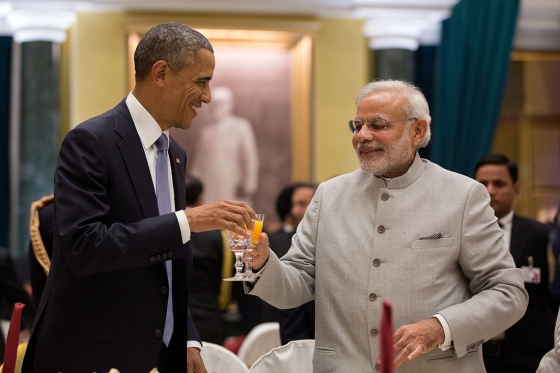Shortly over a month ago, the United States Senate gave its advice and consent to the nomination of Lloyd J. Austin III to be the next U.S. Secretary of Defense. Nominees to the position, a principal one within the U.S. national security establishment, remain among the few in Washington to receive near-unanimous bipartisan support; the last ten secretaries have been confirmed with no fewer than 90 votes out of 100, with most gaining unanimous consent.
In this context, Austin’s nomination was, on the one hand, no different, receiving 93 votes for confirmation. On the other hand, it was also substantially different, given his unique status as a nominee. A former career officer in the U.S. Army – having held the rank of full general, and served for 36 years – Austin’s confirmation was met with procedural opposition from both Democratic and Republican senators, who argued against his appointment given his prior service. Under federal law (i.e. 10 U.S.C. § 113), a person “may not be appointed” to the position if they have, within seven years prior to appointment, served as a commissioned officer in the U.S. Armed Forces. To overcome this impediment, Congress had to enact a law that effectively waived the prohibition for Austin’s nomination – which had received a mere 69 votes, and was opposed by another 27 senators. From this standpoint, Austin’s confirmation was far less bipartisan that it seemed.
Opposition to this waiver, and (procedurally) to Austin’s nomination, stemmed in part from senators’ concerns for the principle and practice of ‘civilian control of the military.’ A longstanding feature of the U.S. political order, the concept draws its origins from pre-Constitutional America – when George Washington, after victory in the American Revolutionary War as general and commander-in-chief of the Continental Army, willfully resigned his commission in 1783 and returned to farming in Virginia. While historical precedents had existed for this measure (e.g., Cincinnatus in the Roman Republic), it was momentous at the outset of the modern era, particularly after centuries of violent, regnal succession in the Old World. When Washington assumed the presidency in 1789, exercising power as commander-in-chief of the armed forces per the Constitution, he did so as a civilian without any formal rank. Consequently, this act became precedential in the U.S. political system and viewed as a canon of civic republican virtue, whereby legitimate control of the military derived not from martial rank but a popular civilian mandate. Since then, all presidents have been civilians (including those who served in the military, resigning their commissions before seeking the office), and have been unchallenged in their status as commanders-in-chief. Indeed, while no constitutional prohibition exists to prevent active-duty military officers from concurrently serving as president, the latter’s civilian status has been viewed as customary of all officeholders, to unambiguously preserve the supremacy of civilian power.
However, rather than merely apply to the president by custom, such was extended to the secretary of defense by law as well – given their position in the United States’ National Command Authority (i.e., the ‘chain-of-command’ connecting presidential orders to the military’s execution of them). Besides being the executive head of the Department of Defense, under the Goldwater-Nichols Act of 1986, the secretary of defense also serves as the intermediary link between the civilian president and unified combatant commanders (i.e., flag-officers responsible for all U.S. operations in a particular global regions) in ordering military action. They are required by the law to transmit orders from the former to the latter, and are the only official who may do so – a strict chain which excludes the renowned Joint Chiefs of Staff (this being a mere advisory body without either command or control). In this context, the post of secretary of defense was viewed as essential to ensuring the principle of civilian control, with their non-military status and appointment by legislative advice and consent, providing a secondary institutional level of civilian authority over the armed forces.
To this end, Austin’s nomination generated considerable discomfort among some senators – believing that his appointment would possibly normalize the practice of appointing former military officers as secretaries of defense and undercut the position’s appearance as substantively civilian in character. Such a waiver had only been granted twice-before in U.S. history, with the most recent dispensation being in 2017, to James Mattis, the Trump Administration’s first Secretary, and a former Marine Corps officer. This relatively recent issuance reinforced these concerns, and was cited by several senators for their opposition (including those who has supported Mattis’ waiver). Indeed, during his customary confirmation hearing before the Senate Armed Services Committee, Austin was pressed on the subject – making promises to ensure non-military departmental leadership positions were filled by civilians with little-to-no prior military service.
Austin’s eventual confirmation and assumption of office may appear to render this subject moot, but dismissal of the issue would be unwise. In the United States political system, where stability is ensured by checks and balances against others’ encroachment of their powers, public officeholders and the public itself must perpetually heed attention to the control of military power – given its capability of misuse for coercion, thereby eroding individual rights and popular sovereignty. Indeed, in the republic’s infancy, the existence of “standing armies” themselves was viewed with similar suspicion, and was proscribed in entirety (with military forces instead envisioned as being drawn-up for ad-hoc purposes). While the exigencies of security threats in the modern era necessitated a departure from this precept, equivalent limitations in a similar vein continue to persist in the American polity (e.g., a two-year constitutional limit on appropriations for the armed forces, and Acts of Congress preventing military deployment for domestic security). In that context, to counteract the ambitions of those jealous of power, whether or not they exist, a default to scrutiny is perpetually necessary to maintain civilian control of the military, and necessitates attention to the proper appointment to positions of authority. Austin’s nomination and incumbency will likely represent little threat to the precept, but reminds observers of the principle’s importance. For as John Curran put it, in America, eternal vigilance is the price of liberty.
One month ago, the United States Senate gave its advice and consent to the nomination of Lloyd J. Austin III to be the country’s Secretary of Defense. Nominees to the position, a principal one within the U.S. national security establishment, remain among the few in Washington to receive near-unanimous bipartisan support; the last ten Secretaries have been confirmed with no fewer than 90 votes, with most gaining unanimous consent.
In this context, Austin’s nomination was, on one hand, no different – receiving 93 votes out of 100 senators for confirmation. However, it was also substantially different, given his unique status as a nominee. A former career officer in the U.S. Army – having held the rank of full General, and served for 36 years – Austin’s confirmation was met with procedural opposition from both Democratic and Republican Senators, who argued against his appointment given his prior service. Under federal law (i.e. 10 U.S.C. § 113), a person “may not be appointed” Secretary of Defense if they have, within seven years prior to appointment, served as a commissioned officer in the U.S. Armed Forces. To overcome this impediment, Congress had to enact a law that, effectively, waived the prohibition for Austin’s nomination – which received merely 69 votes, and was opposed by another 27 senators. In this measure, Austin’s confirmation was far less bipartisan that it seemed.
Opposition to this waiver, and (procedurally) to Austin’s nomination, stemmed in part from Senators’ concerns for the principle and practice of ‘civilian control of the military.’ A longstanding feature of the U.S. political order, the concept draws its origins from pre-Constitutional America – when George Washington, after victory in the American Revolutionary War as General and Commander-in-Chief of the Continental Army, willfully resigned his commission in 1783 and returned to farming in Virginia. While historical precedents had existed for this measure (e.g., Cincinnatus in the Roman Republic), it was momentous at the outset of the modern era – particularly, after centuries of violent, regnal succession in the Old World. When Washington returned as President in 1789, exercising power as Commander-in-Chief of the armed forces per the Constitution, he did so as a civilian without any formal rank. This act, consequently, became precedential in the U.S. political system – viewed as a canon of civic republican virtue – whereby legitimate control of the military derived not from martial rank but a popular civilian mandate. Since then, all Presidents have been civilians (including those who served in the military, resigning their commissions before seeking the office), and have been unchallenged in their status as Commanders-in-Chief. Indeed, while no constitutional prohibition exists against active-duty military officers from concurrently serving as President, the latter’s civilian status has been viewed as customary of all officeholders – to unambiguously preserve the supremacy of civilian power.
However, rather than merely apply to the President by custom, such was extended to the Secretary of Defense by law as well – given their position in the United States’ National Command Authority (i.e., the ‘chain-of-command’ connecting presidential orders to the military’s execution of them). Besides being the executive head of the Department of Defense; under the Goldwater-Nichols Act of 1986, the Secretary also serves as the intermediary link between the civilian President and Unified Combatant Commanders (i.e., flag-officers responsible for all U.S. operations in a particular global regions) in ordering military action. They are required by the law to transmit orders from the former to the latter, and are the only official who may do so – a strict chain which excludes the renowned Joint Chiefs of Staff (this being a mere advisory body without either command or control). In this context, the Secretary was viewed as essential to ensuring the principle of civilian control – with their non-military status, and appointment by legislative advice and consent, providing a secondary institutional level of civilian authority over the armed forces.
To this end, Austin’s nomination generated considerable discomfort among some Senators – believing that his appointment would possibly normalize the practice of appointing former military officers as Secretary of Defense, and undercut the position’s appearance as substantively civilian in character. Such a waiver had only been granted twice-before in U.S. history, with the most recent grant in 2017 – to James Mattis, a former Marine Corps officer – reinforcing these concerns, and being cited by several Senators for their opposition (including those who has supported Mattis’ waiver). Indeed, during his customary confirmation hearing before the Senate Armed Services Committee, Austin was pressed on the subject – making promises to ensure non-military departmental leadership positions were filled by civilians with little-to-no prior military service.
Austin’s eventual confirmation and assumption of office may appear to render this subject moot, but dismissal of the issue would be most unwise. In the United States political system, where stability is ensured by checks and balances against others’ encroachment of their powers, public officers and the public itself must perpetually heed attention to the control of military power – given its capability of misuse for coercion, thereby eroding individual rights and popular sovereignty. Indeed, in the republic’s infancy, the existence of “standing armies” themselves was viewed with similar suspicion, and was proscribed in entirety (with military forces instead envisioned as being drawn-up for ad-hoc purposes). While the dynamism of security threats in the modern era necessitated a departure from this precept, equivalent limitations in a similar vein continue to persist in the American polity (e.g., a two-year constitutional limit on appropriations for the armed forces, and Acts of Congress preventing military deployment for domestic security). In that context, to counteract the ambitions of those jealous of power, whether or not they exist, a default to scrutiny is perpetually necessary to maintain civilian control of the military, and necessitates our attention to the proper appointment to positions of authority. Austin’s nomination and incumbency will likely represent little threat to the precept, but reminds us of the principle’s importance. For as John Curran put it, in America, eternal vigilance is the price of liberty.
Photo: US Vice President Joe Biden (L) meets with General Lloyd Austin, the commander of United States Forces – Iraq (USF-I), by Ahmad Al-Rubaye, Agence France Presse, via British Broadcasting Corporation. Getty Images.
Disclaimer: Any views or opinions expressed in articles are solely those of the authors and do not necessarily represent the views of the NATO Association of Canada.




